Young Innovators Transform Lives: 'We Wanted to Help, and Didn't Realize How Far It Would Go'
After months of dedication, student groups at Yad Sarah showcased an impressive array of projects to aid people with disabilities. Discover how they developed an umbrella for crutch users or a device for those with limited hand function. The finalists reveal their secrets.
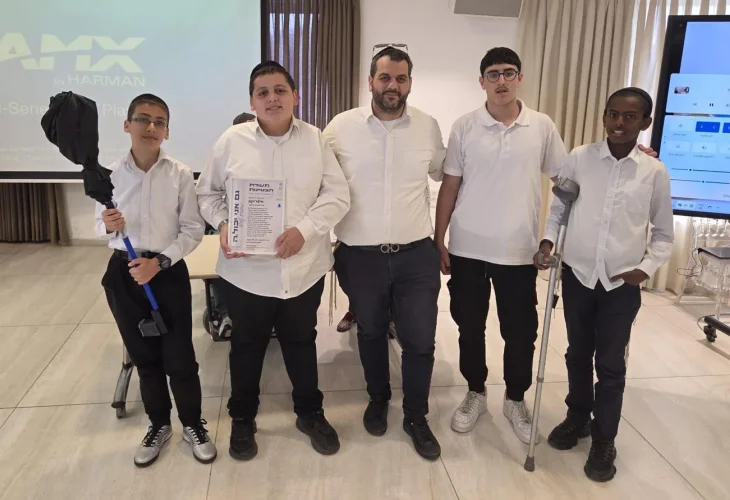
Some actions seem straightforward to us. We perform them daily without thinking. Yet, we often overlook the fact that for some, these tasks are impossible or extremely difficult. Have you considered the challenges a blind person faces identifying their surroundings, the struggles of amputee soldiers performing daily tasks, or how someone with crutches uses an umbrella when their hands are occupied?
Yad Sarah is continuously raising awareness on these issues. Last week, they gathered dozens of students from science clusters and centers across Israel to present an array of innovative technological projects developed within their schools. The results were both moving and astounding: over 100 life-altering innovations.
Meet 'Metrikev'
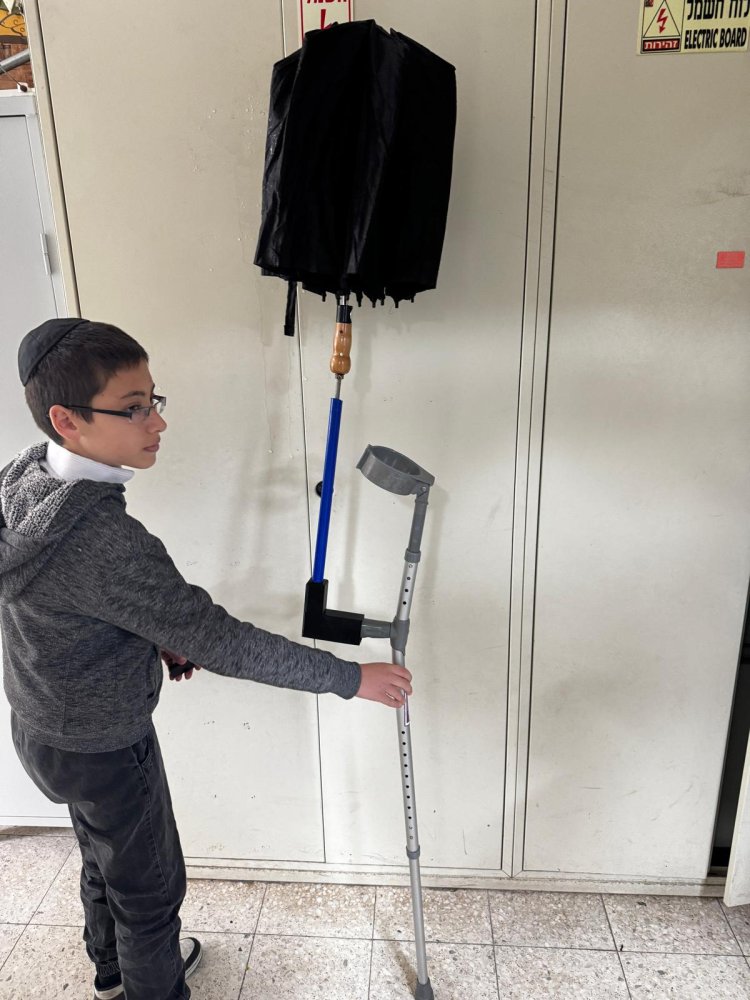
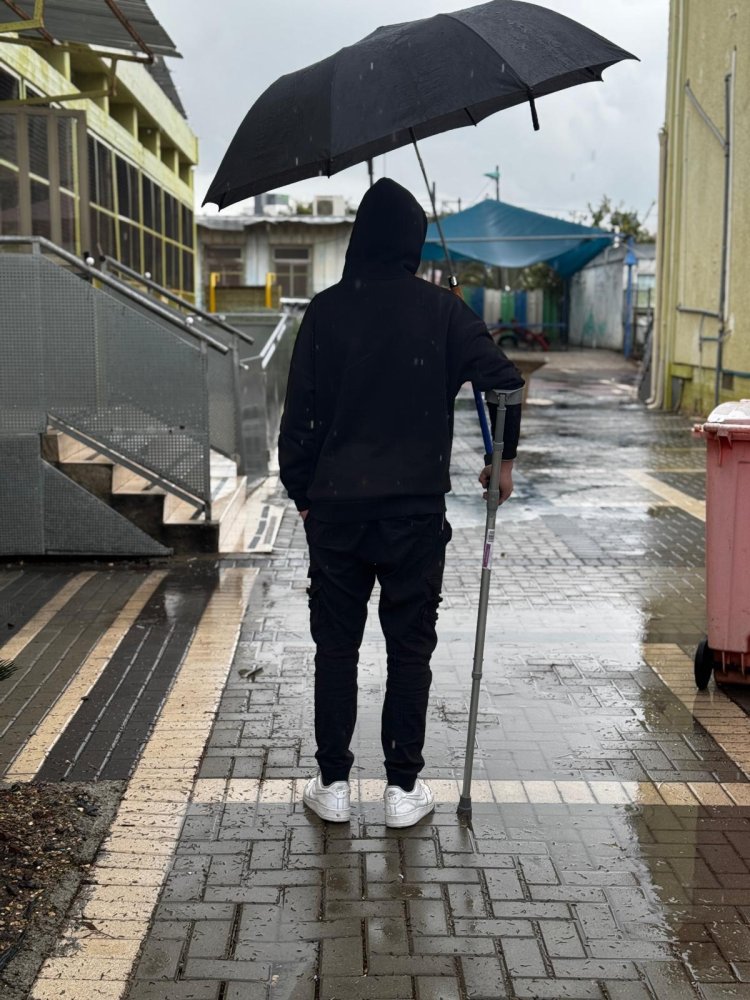
One of the standout student groups includes four students from Yeshurun School in Kiryat Malachi: Adam Aminov, Nehorai Shmaiah, Neria Habto, and Ori Vekanish, guided by teacher Nehorai Malka.
Speaking with them, you can hear their excitement as they describe their invention, an electric umbrella called "Metrikev," which opens with one hand and attaches to crutches or a walker.
How did you come up with the idea?
"It began when we were told about the project in computer classes and invited to participate," explains Adam. "We were tasked with helping people with disabilities by finding solutions for challenging tasks or inventing aids, and we set to work."
 Students showcasing 'Metrikev'
Students showcasing 'Metrikev'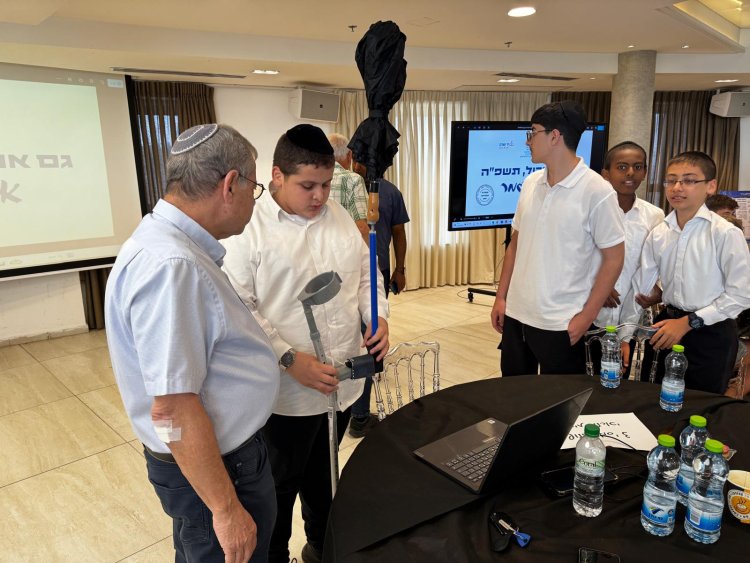 Students showcasing 'Metrikev'
Students showcasing 'Metrikev'"Honestly, we had too many ideas," adds Neria. "We considered many good ideas, some a bit crazy, like a pillow with tiny speakers to help veterans sleep, and eventually settled on the umbrella idea, realizing its practicality and effectiveness. What would someone with crutches do if it rained while shopping? We designed a holder to attach it to the crutches, keeping hands free."
Their friend Nehorai continues: "We know someone personally who uses crutches, and we wanted to devise something helpful. The umbrella felt like a beneficial and effective development."
The students detail their journey: "The work spanned about half a year, utilizing a 3D printer. We started with a prototype, trying various umbrellas until finding the right size for full protection. We conducted real-time tests, even in the rain, until finalizing the holder."
It's worth noting that among all participating schools, these four young students received accolades for their impactful innovation after judges from Yad Sarah and industry experts recognized the product's potential.
There were challenges, too. "The main difficulty was stability," notes Neria. "The umbrella needed to remain stable in wind and rain. Through research, we learned stability depended on the connector's height, and once placed correctly, we achieved the best outcome."
Is your idea unique, or are similar products available?
The students surprised themselves with their findings. "We checked and found similar inventions for scooters but not for crutches," explains Neria.
All four hope the umbrella will replicate its success and assist many more individuals with disabilities.
Teacher Nehorai Malka adds that he is confident the students gained greatly from the project experience. "Before starting, they visited Yad Sarah's building, saw various developments, and thought, 'There's nothing left to invent!' But as we delved deeper, they learned creative thinking, process simplification, teamwork, and most importantly, compassion for others' experiences."
A Patent for Netilat Yadayim
At 'Ulpanat Hineini' in Kiryat Malachi, another group participated: students Tohar Biton, Matat Rosen, Avital Breshshet, Noa Veseril, and Hadass Rawadi, part of a science excellence group in 7th and 8th grade, led by teacher Moriah Shlomo.
From the project's start, they decided on a project related to netilat yadayim. "We aimed it at someone with paralysis or difficulty moving one hand," they explain. "It happens often during the day, and we wanted to help them perform the mitzvah even with a non-active hand."
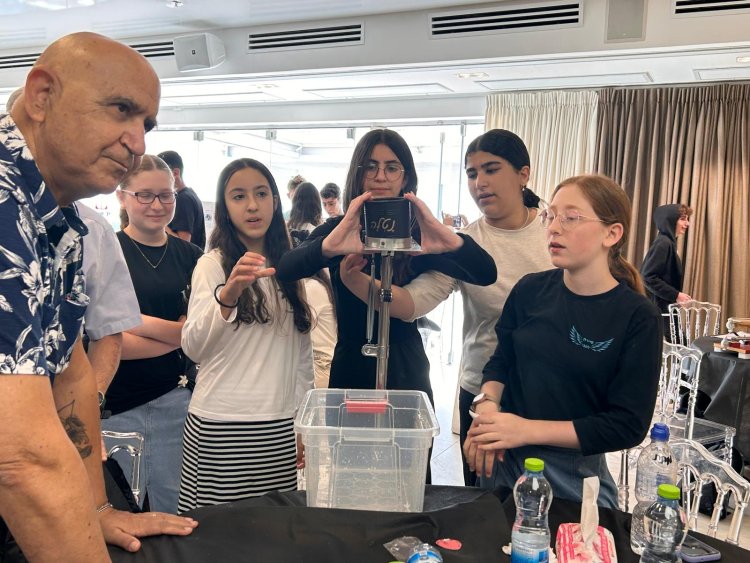 Students who made it to the finals
Students who made it to the finals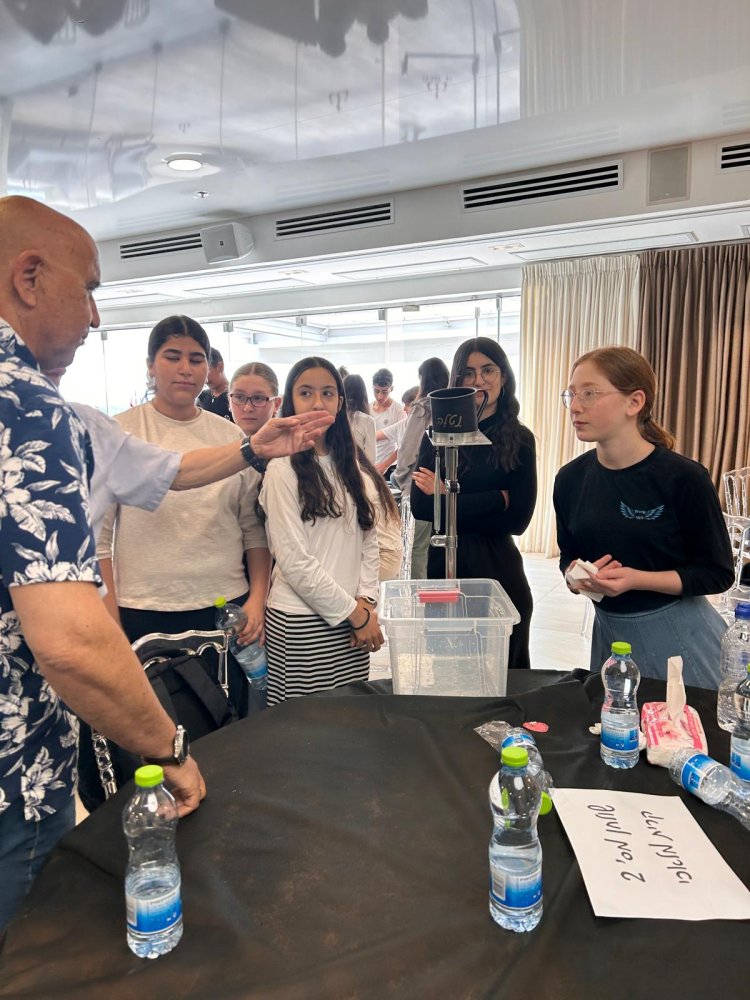 Students who made it to the finals
Students who made it to the finals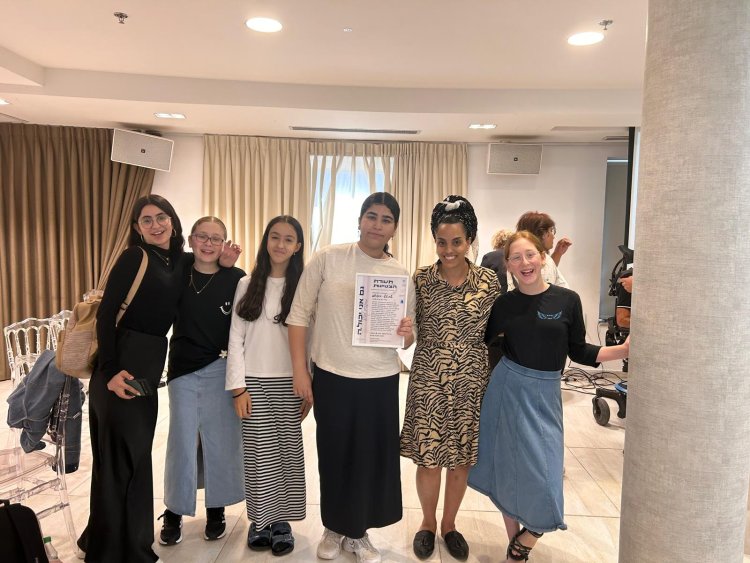 Students who made it to the finals
Students who made it to the finalsThe result is a special metal device that attaches to a sink, using a pedal under the sink connected to the water vessel. "The person picks up the vessel with their functioning hand, fills it with water, attaches it, and uses their foot to press the pedal, which automates the process," they describe. They ensured it functions on Shabbat by designing it mechanically rather than electrically.
Where did the idea come from?
"It started because a friend of my father's has a paralyzed hand and visits us on Shabbat," explains Matat. "I watched his struggle with netilat yadayim and wanted to help him, leading to the device."
This was also a lengthy project. "We created an initial prototype with various materials, dismantled a pedal trash can to understand the mechanism, and replicated it in our device. Then, the product was developed into a final version by the company 'Flex,' specializing in turning ideas into products, within three weeks."
Now, they hope this solution will assist many who need it. "We don't see it as grandiose, just simple and easy, but that's the point—sometimes a little thought can enhance someone's life and provide relief, exactly our goal."
The municipality of Kiryat Malachi also supported the project, and city official Avital Tesler, head of research and science, expressed pride. Mayor Eliyahu Zohar declared, "Our children show that we don't need Tel Aviv tech experts to change lives. Just the desire, creativity, and a mission spirit. They're teaching us what soulful innovation looks like."
According to Tesler, discussions are underway to expand the program citywide, with further interest from the IDF and health system to develop projects seen at the finals, potentially advancing through professional partnerships.

